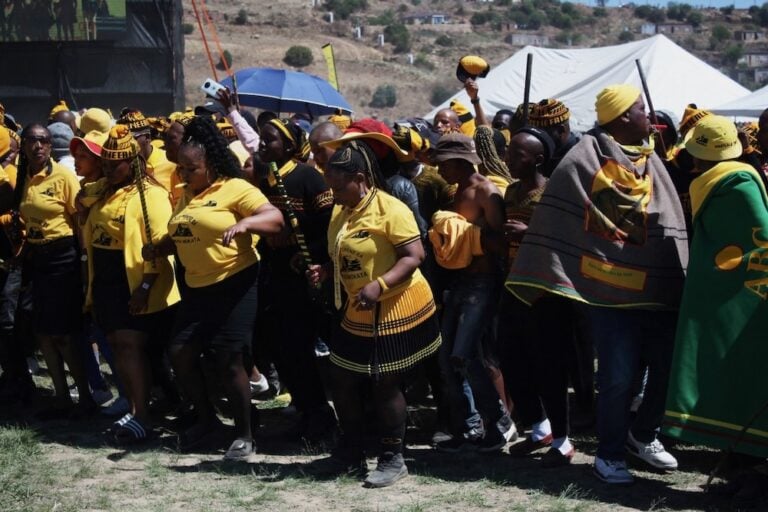(MISA/IFEX) – The editor of “MoAfrika” magazine, Candi Ramainoane, has lost an appeal in the Lesotho Court of Appeal against a High Court award of damages for defamation totalling more than 100,000 ZARands (US$13,210) to a member of the Lesotho Parliament. The High Court had awarded R99,000 (US$13,078) as compensatory damages and R15,000 (US$1,982) as […]
(MISA/IFEX) – The editor of “MoAfrika” magazine, Candi Ramainoane, has lost an appeal in the Lesotho Court of Appeal against a High Court award of damages for defamation totalling more than 100,000 ZARands (US$13,210) to a member of the Lesotho Parliament. The High Court had awarded R99,000 (US$13,078) as compensatory damages and R15,000 (US$1,982) as punitive damages against Ramainoane.
Upholding the High Court finding, Justice Mark Kumleben said the action arose from an article published in “MoAfrika” in September 1996 and which alleged that the member of parliament, Moeketsi Sello, was guilty of certain wrongdoing while he lived in Botswana.
The appeal judge said the substance of the article in question was that Sello had “acted dishonestly in more than one respect; that he had misappropriated funds of a political party; that he had illicitly dealt in diamonds and that he had bribed, or attempted to bribe the police official who arrested him, on this account.”
Justice Kumleben said the background to the theft allegations was that while a member of the Basotholand Congress Party (BCP), the then ruling party, Sello had misappropriated party funds. He later joined a rival party, the Lesotho Congress for Democracy (LCD), and the defamatory article was published thereafter.
During the High Court case, Sello denied the allegations, while their falsehood was not controverted by Ramainoane, who said that the allegations were based on what appeared in a book, “Lesotho and the struggle for Azania”, written by one Leeman. He accepted the accuracy of the statements and merely repeated them, adding that he had no intention of defaming Sello.
The Appeal Court found that what evidence there was strongly suggested that Ramainoane’s conduct in publishing the article in question was “negligent, if not reckless”. The judgement noted that in his evidence Ramainoane repeatedly sought to exonerate himself by saying that the article quoted from, or was based on, Leeman’s book, which he had not read before the article was published. The judge said that that argument did not relieve him of a duty to take steps to ascertain whether what was to be repeated by publication was correct.
The author of the article and Ramainoane as editor, if necessary, were required to check on the “veracity of the far-reaching and highly defamatory allegations in the book before including them in the article”, the judgement said. It said, for instance, the checking could have been made by making enquiries from the police authorities as to whether Sello had been arrested, and if so, for what reason and whether the arrest turned out to have been justified.
Background Information
On 22 December 1999 the Lesotho High Court found Ramainoane liable for defamation in a civil action brought by Sello. It followed an anonymous letter-to-the-editor that was published in a September 1996 edition of “MoAfrika”.
The letter in question contained statements to the effect that the former treasurer of the BCP, Shakhane Mokhehle (currently the minister of law, justice and constitutional affairs), had embezzled party funds and used them together with the plaintiff while the two were living in exile in Botswana. The letter also stated that the two (Mokhehle and Sello) had bribed Botswana police, who had arrested them for illegal diamond dealing in Botswana in 1980. These “facts”, the author of the letter said, were quoted from a book entitled “Lesotho and the Struggle for Azania”, written by Bernard Leeman.
Ramainoane’s refusal to disclose the name and particulars of the author of the published letter led to the suit.
The court concluded that Ramainoane was unable to prove the truth of the statements and to show that what was said in the letter was an expression of opinion. He was therefore unable to defend his arguments of justified defamation and fair comment.


